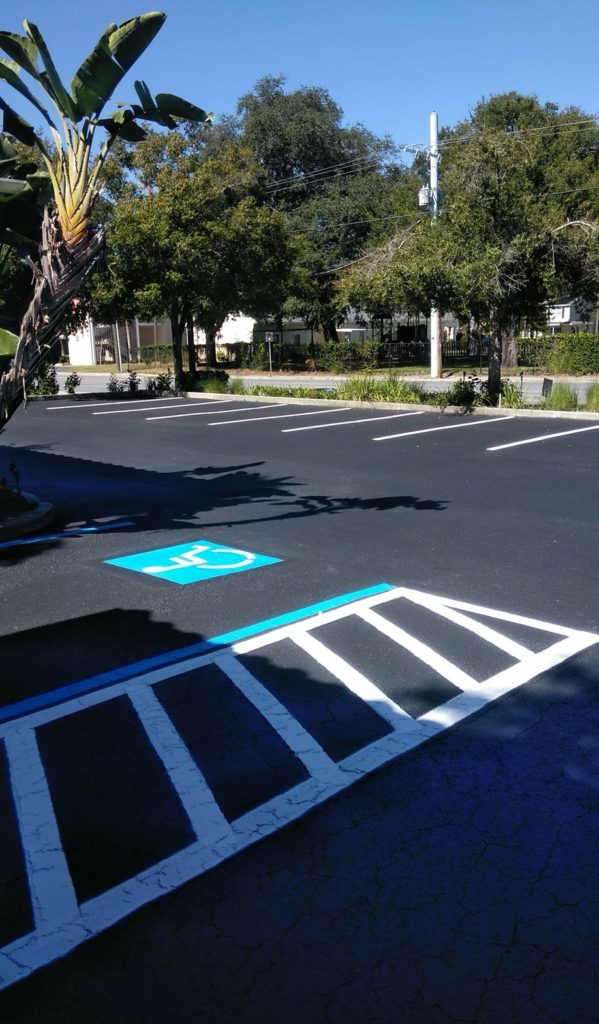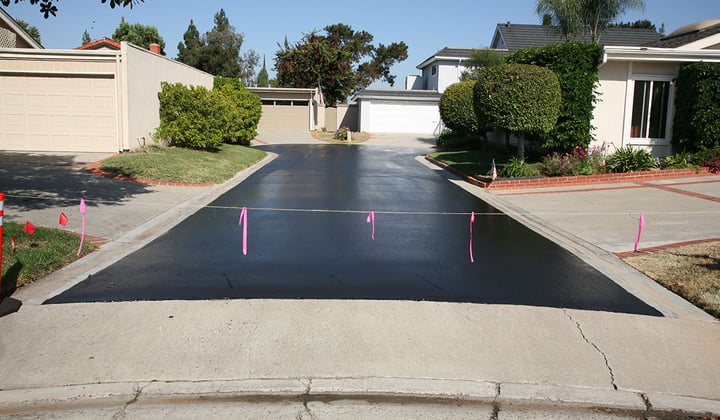Take Full Advantage Of Investment Returns: Angled Parking Area Perfection with Asphalt Sealing
Take Full Advantage Of Investment Returns: Angled Parking Area Perfection with Asphalt Sealing
Blog Article
Warm Mix Asphalt: A Sustainable Solution for Pavement
Warm Mix Asphalt (HMA) has actually emerged as a leading sustainable option for sidewalk remedies, supplying a myriad of environmental advantages and cutting-edge innovations. As the demand for green building and construction techniques expands, checking out the nuances of HMA's sustainability can supply beneficial understandings right into the future of sidewalk services.
Environmental Benefits of Warm Mix Asphalt

Moreover, Warm Mix Asphalt aids to reduce metropolitan warmth island results. Its dark shade absorbs sunshine, lowering the amount of heat reflected back into the atmosphere contrasted to lighter-colored sidewalks. This can lower ambient temperatures in city locations, reducing the need for air conditioning and ultimately minimizing energy usage.
Additionally, Warm Mix Asphalt adds to enhanced stormwater management. Its permeable nature enables water to reenergize and infiltrate the pavement groundwater supplies, lowering overflow and the danger of flooding. These ecological benefits make Hot Mix Asphalt a sustainable selection for paving roads and freeways.
Power Performance in HMA Manufacturing
Is power performance a crucial consider the manufacturing of Hot Mix Asphalt (HMA)? Definitely. Power plays a substantial duty in the production of HMA, affecting both price and environmental sustainability. One vital element of power performance in HMA production is making use of warm mix asphalt (WMA) technologies (regrading). WMA allows for the mixing and positioning of asphalt at reduced temperature levels contrasted to standard warm mix asphalt, resulting in decreased power usage throughout production. This procedure not just decreases fuel usage but also decreases greenhouse gas emissions, making it a much more eco pleasant option.
Furthermore, improvements in plant innovations have brought about even more energy-efficient HMA manufacturing procedures. Modern plants are created with features like recycled asphalt sidewalk (RAP) processing capacities, efficient heater systems, and improved insulation, all contributing to energy financial savings. By enhancing power usage in HMA production, the market can lower its carbon impact while maintaining high-quality pavement materials. Power efficiency is, as a result, an essential factor to consider in making sure the sustainability of Hot Mix Asphalt production.
Recyclability of Hot Mix Asphalt
The recyclability of Hot Mix Asphalt (HMA) is a crucial facet of its sustainability and long-lasting environmental impact. HMA is one of one of the most recycled materials in the United States, with over 100 million lots of recovered asphalt pavement (RAP) being recycled every year in new sidewalk building and construction. Recycling HMA supplies several environmental benefits, such as minimizing the demand for virgin materials, decreasing power consumption throughout manufacturing, and lowering the quantity of waste sent out to landfills.
The procedure of reusing HMA entails milling the existing sidewalk, squashing it into smaller pieces, and blending it with new accumulation and asphalt binder to develop a recycled mix. This recycled mix can frequently carry out along with and even far better than conventional HMA, while needing less raw materials and generating lower greenhouse gas exhausts. By including RAP right into brand-new pavement jobs, road agencies can save all-natural resources, reduce costs, and minimize the ecological impact of roadway construction and maintenance activities. In general, the recyclability of HMA plays a significant duty in advertising lasting methods within the pavement market.

Long-Term Performance of HMA
Asphalt sidewalks demonstrate resilience and resilience over an extensive period, reflecting the long-lasting performance of Warm Mix Asphalt (HMA) The longevity of HMA can be credited to its capability to withstand rush hour loads, extreme weather, and the results of aging. Research studies have actually shown that properly designed and correctly created HMA pavements can last for two decades or more with normal upkeep. The trick to optimizing the lasting efficiency of HMA hinges on making use of high-quality products, adhering to best techniques in building and construction, and applying efficient upkeep approaches. Correct drainage, routine inspections, and timely repair services are vital for maintaining the architectural stability of HMA pavements over time. Furthermore, advancements in HMA technology, such as the usage of polymer-modified binders and warm mix asphalt, have actually additionally boosted the toughness and durability of HMA pavements. By focusing on top quality building and upkeep techniques, HMA remains to verify itself as a economical and sustainable service for lasting pavement framework.

HMA: Toughness and Sustainability
Demonstrating both durability and sustainability, Warm Mix Asphalt (HMA) has become a foundation in see this here the construction of lasting sidewalk facilities - commercial parking lot paving. HMA's resilience comes from its ability to withstand hefty tons, harsh climate condition, and high web traffic quantities, making it a trustworthy choice for roads, freeways, and flight terminal paths. The composition of HMA, which commonly consists of aggregates, binder, and filler, plays a critical role in improving its long life and resistance to tear and put on
Furthermore, HMA's sustainability depends on its recyclability and energy-efficient manufacturing procedure. The capacity to recycle recovered asphalt over here pavement (RAP) in brand-new HMA blends reduces the demand for virgin materials and minimizes the environmental impact of pavement construction and upkeep. Furthermore, the energy performance of producing HMA depends on its lower blending temperatures contrasted to other sidewalk products, resulting in decreased power usage and greenhouse gas emissions.
Conclusion
Finally, warm mix asphalt (HMA) offers a sustainable solution for sidewalk with its eco-friendly characteristics. HMA's recyclability, energy efficiency in production, and long-lasting toughness make it an environmentally friendly option for roadway building. By conserving natural deposits, minimizing waste, and reducing greenhouse gas exhausts, HMA plays a crucial role in advertising sustainability in facilities growth. Its ability to minimize urban warmth island results even more underscores its value in creating durable and eco mindful pavement Website systems.
HMA is one of the most recycled products in the United States, with over 100 million bunches of recovered asphalt pavement (RAP) being reused each year in new pavement building and construction.The procedure of reusing HMA involves milling the existing pavement, squashing it right into smaller items, and mixing it with brand-new aggregate and asphalt binder to develop a recycled mix.Asphalt pavements demonstrate resilience and resilience over a prolonged duration, reflecting the long-term performance of Hot Mix Asphalt (HMA) Additionally, advancements in HMA innovation, such as the usage of polymer-modified binders and warm mix asphalt, have actually better boosted the durability and longevity of HMA sidewalks. The capability to reuse reclaimed asphalt pavement (RAP) in new HMA mixtures reduces the need for virgin materials and lessens the ecological influence of sidewalk building and construction and upkeep.
Report this page